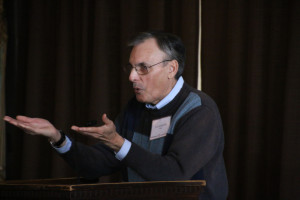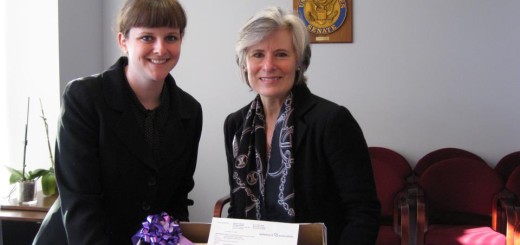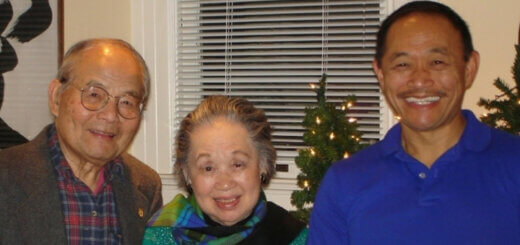Mindful and Spiritual Living with Alzheimer’s
by Lou A. Bordisso, Ed.D
Many years ago, I journeyed from Sacramento, California to Milwaukee, Wisconsin to begin a year as a Novice with a Roman Catholic order. In the middle of my cross-country journey, I stopped in Nebraska at a monastery for a mini retreat and rest from the long drive. During my short retreat, I was assigned a senior monk as my “mentor” who helped me to get through the complicated morning and evening prayers, songs, and flipping back and forth through the pages of monastic rituals. I was honored to have him give me a guided tour of the monastic grounds as well.
The monk, as I recall, was quite elderly and disfigured with his shoulders slumped forward as he walked with his cane. He looked like he was in a considerable amount of pain as he attempted to move about. Even with his body failing him, I could not help but to notice a glow on his face and a sense of gentle compassion in his voice and gestures. I recall being in awe of him . Even when we were not engaged in conversation he appeared to have a manifestation of something sacred or a divine presence. At the same time, there was no explicit talk about God or a Higher Power, or anything spiritual. St. Francis once said, “Preach often, but use few words.” Even though this monk was a Benedictine and not a Franciscan, he embodied the spiritual wisdom of St. Francis in his very being. I came to know and respect his patience, prayerfulness, and sage-like wisdom.
Living with Alzheimer’s or a related dementia can be daunting on a daily basis. As many of us know, there are good days and not-so-good days. I often liken my “not-so-good” days as a desert experience of dryness and thirst for my life to be more than it is in the moment. However, I then reflect on my experience with my elderly monk-mentor with his physical pain and brokenness. In the midst of his pain and brokenness, he was able to be come a manifestation of peace, joy, and hope. He modeled for me a way for me not to get rid of my pain and suffering, but a way to live through it. Through years of introspection, contemplation, and meditation, he came to encounter a sense of the sacred or divine within himself, which sustained him during moments of daily strife.
I may never come to embody what my monk-mentor has discovered on his journey. However, when Alzheimer’s becomes overly “dispiriting”, what I can do is reflect back to his example and, look deep within, be honest with myself, and identify what may be “disfigured” and seek to “transfigure” my attitudes, actions, and physical/emotional sufferings by finding a “quiet place” within – even if it is just for a moment or two – in order to quench my thirst in the midst of my desert experience.
Lou Bordisso resides in northern California. In December 2013, he received a “Threads of Hope” award from his community for his courageous and inspiring perspectives on living with Alzheimer’s. He has recently started writing a blog that can be viewed at: http://alzreflection.blog.com
This article is reprinted from “Perspectives – A Newsletter for Individuals with Alzheimer’s or a Related Disorder” published by the UC San Diego Shiley-Marcos Alzheimer’s Disease Research Center. For a free quarterly e-subscription, contact Lisa Snyder at lsnyder@ucsd.edu .


















